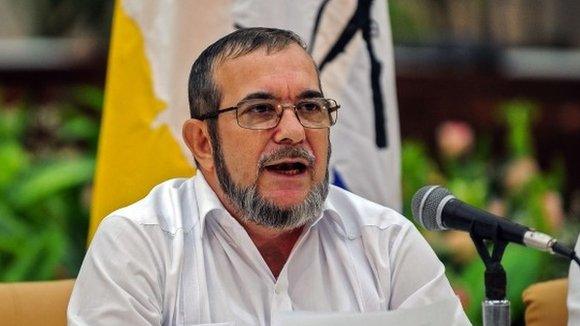Colombia-Farc peace talks delayed over 'differences'
- Published
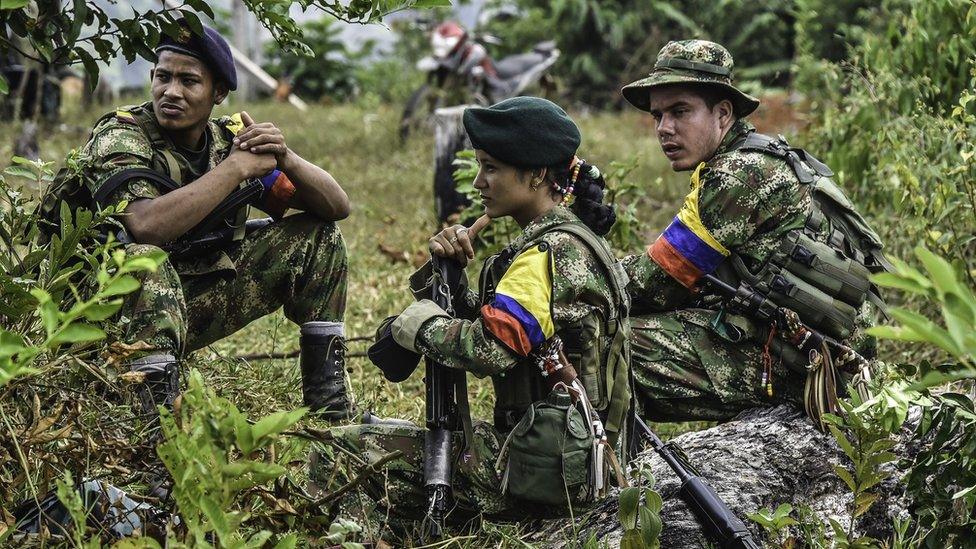
The Farc was founded in 1964 as a Marxist-inspired army to defend landless peasants
The Colombian government and the Farc rebel group say important differences remain after more than three years of peace talks.
The two sides had set up a 23 March deadline to sign a final agreement, but negotiations in Cuba have stalled in past months.
Chief Colombian government negotiator Humberto de la Calle that there was no point in rushing into a bad agreement.
Both sides said they would strive to reach a deal by the end of the year.
The Farc (Revolutionary Armed Forces of Colombia) said that, despite the differences, they remained committed to finding a peaceful solution to more than five decades of conflict.
Peace talks have been held in Havana since November 2012.
"We have to inform the public that at the moment there are still important differences with the Farc," said Mr De la Calle.
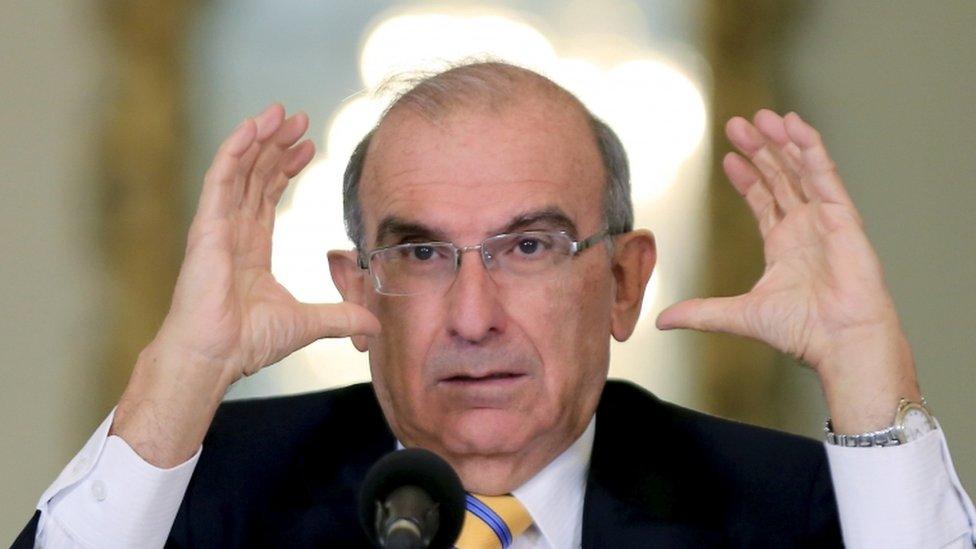
De la Calle said that a bad deal was not an option
"From the government's perspective, any agreement we reach must be a good agreement, the best possible for the Colombians," he said in Havana.
'Destroy weapons'
The government and the rebels had announced earlier this month that they would miss the 23 March deadline.
Both sides have reached agreement on several issues, including land reform, justice for the victims of the conflict and the involvement of the rebels with drug trafficking.
But there are still serious disagreements over the disarmament of the Marxist rebels.
"There can't be any doubt about the [Farc's] decision to decommission and destroy their weapons, to close non-conventional arms factories and commit not to buy new weapons," said Mr De la Calle.
Once an agreement is reached, it will need to be approved by the Colombian people in a referendum.
President Juan Manuel Santos says he is confident Colombians will back the deal, which will bring the rebels into the legal political process.
More than 220,000 people have been killed and millions have been displaced in the conflict, which began in the 1960s and has also involved other guerrilla groups and right-wing paramilitaries.
- Published22 March 2016
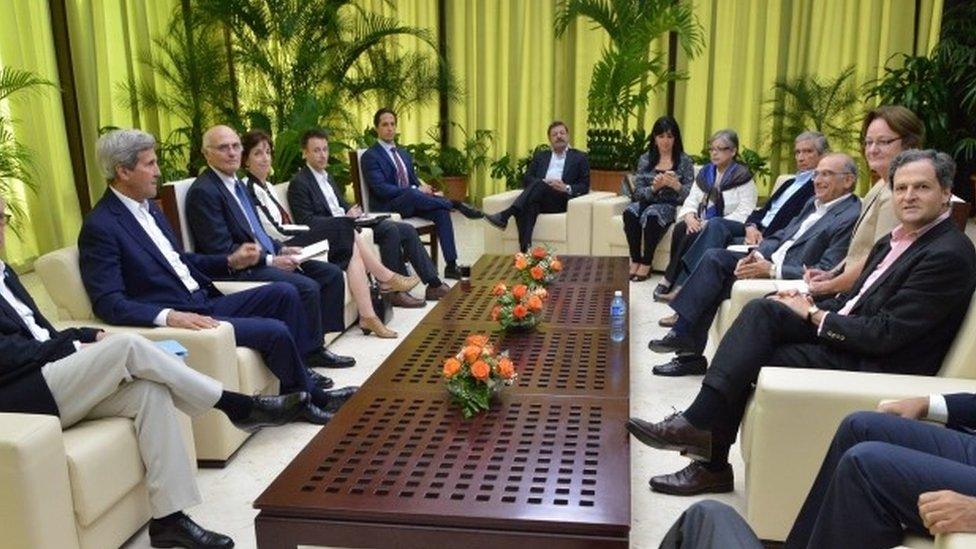
- Published28 February 2016
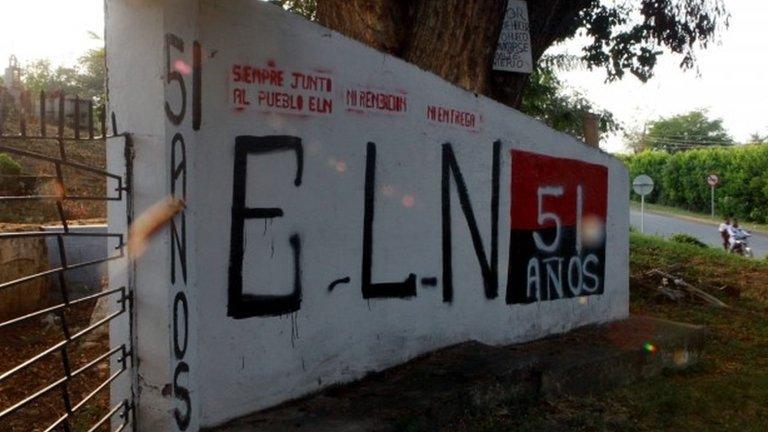
- Published24 September 2015
